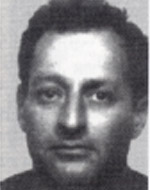Son of Bella and Hanan, was born on 19.10.1941 in Kibbutz Mishmar Hasharon. Avner was the eldest son of one of the founders of the kibbutz and from the dawn of his youth absorbed love for the land and awareness of Israel’s security. Avner attended elementary and junior high school in his kibbutz, and then studied for two years at the Ruppin Midrasha. He was an enthusiastic athlete. He played basketball in his kibbutz, trained the youngsters and was in charge of the youth division. He liked to travel and was well acquainted with the tours in Israel. Among his sporting hobbies was tennis. In November 1959, Avner enlisted in the IDF and volunteered for the Paratroopers Brigade. In October 1961, he completed a course for infantry officers and was promoted to lieutenant colonel. He had a parachuting course and towards the end of his compulsory service he was promoted to lieutenant. Upon his release from the regular army, he returned to his kibbutz and worked as a coordinator of the vineyard branch until the Six-Day War broke out. On the eve of the war he was drafted into reserve duty and commanded a paratroopers unit that participated in the battles. In December 1967 he was offered a return to permanent army service. He accepted the offer, was sent to a company commanders course and at the end of the course was promoted to captain. Avner was appointed commander of the Haruv reconnaissance unit and took an active part in the pursuit of saboteurs operating in the Jordan Valley. He left his kibbutz and moved with his family to Jerusalem. During his service he was transferred to serve in the officers’ school in the Negev and moved to Mitzpeh Ramon. In his character, Avner was an educator, and during his free time he often appeared to marginal youth in lectures about the importance of service in combat units. In his role as an educator and commander of schools and training centers, he established an entire generation of soldiers in the elite units of the IDF, and was a devoted man, devoted to his family, a book lover, and deeply committed to peace. In the Yom Kippur War, Abner ordered a paratroopers unit that fought in the Sinai, and was sent to rehabilitate the Hermon post, which was captured by the Syrians at the outbreak of the war and then released, “In command. In 1975 he was promoted to the rank of lieutenant colonel, and in 1977 he was appointed to the Tel Aviv University. He studied general history in the evening, outside his military service hours. For most of his career in the career army, he spent most of his career as a combat instructor in courses and schools for combat officers. His commanders commended his important contribution to training a generation of combat officers. The OC Central Command, who was in charge of it, noted as an officer behind him “a rich instructional and commanding service track, which puts him as a realistic candidate for the position of brigade commander in every possible brigade in the IDF.” His last job was a battalion commander in the battalion headquarters. He built his home in Beit Shemesh, where he moved his family. In a summary of his interview in June 1983, his commander concluded: “For the past two years, Avner has been serving as head of the organization’s training branch. He plays his role in the best possible way. On April 18, 1984, Avner was in a position in Ramallah, and on his way back to his office in the Modiin bloc, he strayed from the road and crashed into a truck driven by a local resident, and Avner was mortally wounded and brought in. He was unconscious for a year and was not confined to his hospital, but he did not return to his home on the day of Nisan 5745 (March 22, 1985). He was 43 years old. He was laid to rest in his kibbutz, Mishmar Hasharon. He left behind a wife, two sons, two daughters, a father and two sisters. The commander of the command center where he served wrote about him in a letter of condolence to his family: “As part of his job, Avner was in charge of the entire IDF training system, a sensitive positionAnd he is very responsible. His devotion to his role was exemplary, and this was reflected in the long hours of work and meticulous attention to detail. Despite the sensitivity of the role, Avner managed to cultivate a relationship of friendship with everyone who came into contact with him. For us, his character will serve as a model for service and mission, and his memory will encourage us to follow his path, striving to improve the quality of the IDF “
